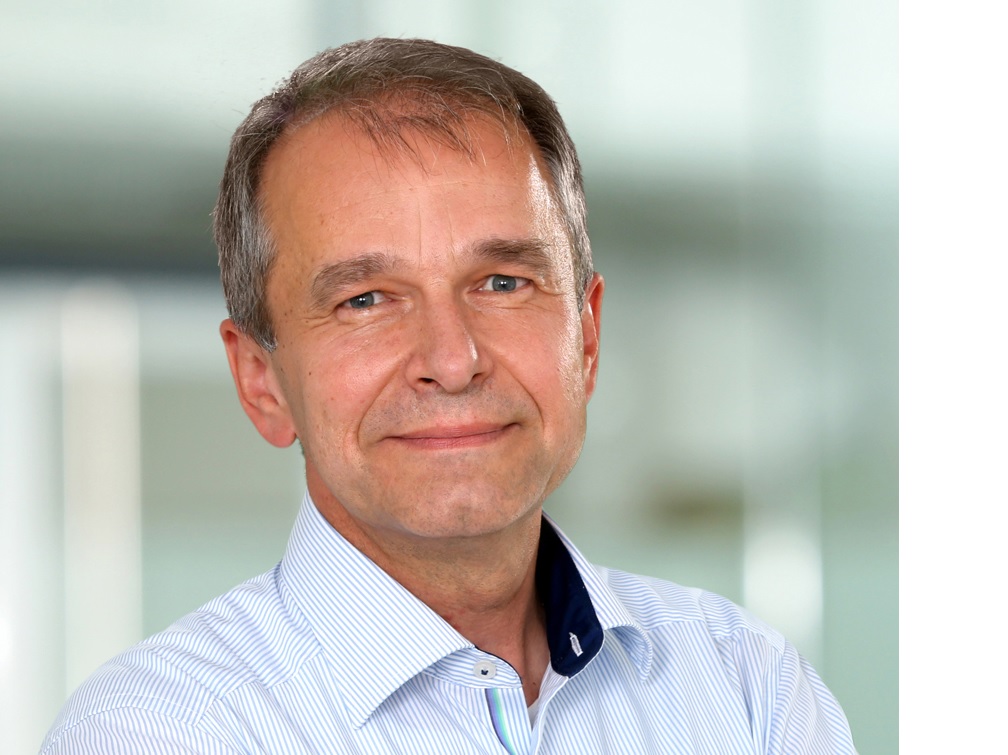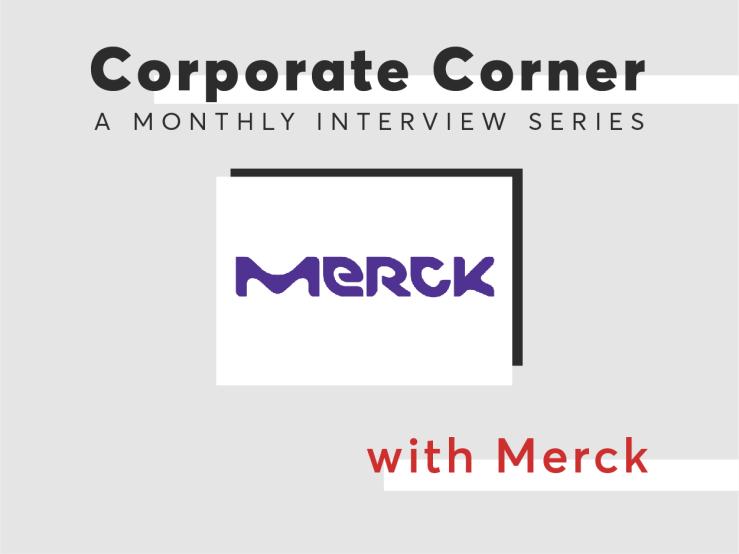The European Innovation Council (EIC) regularly hosts EIC Corporate Days, matchmaking events between Europe's largest corporates and EIC beneficiaries. In this new series, we will discover what makes these corporates tick, what's their approach to innovation and what they are looking for. In light of the EIC Corporate Day with Merck, we met with Ulrich Betz, Vice President of Innovation at the company that gave us a few insights.
On 30 September 2021, the European Innovation Council (EIC) together with Merck, a renowned science and technology company with more than 350 years of history, and a leading force in chemical, pharmaceutical, and life sciences, brought together 16 EIC beneficiaries. After the event, we had the chance to e-meet with Ulrich Betz and pose him some questions. Here’s what he had to say.
Can you briefly describe your role within the company?
I’m the Vice President of Innovation at Merck, and my team and I work on several main areas to increase the innovation capabilities of the company. The first revolves around strategic collaborations with external partners - this means we work to bring new innovative partners and technologies to the company and then also manage the interaction to make the alliances successful. We also work on R&D projects to enable us to promote the culture of innovation in the company. We launched an internal competition that allows workers to submit their ideas moving forward and create entrepreneurs.

Also, we desire to bring new talent into the company, so that's why we started a project called the Merck Innovation Cup. It's a way of inviting the best students and young professionals from all over the world for a one-week summer camp, where they get the possibility of having lectures from Merck managers and researchers, plus learn about work in a corporate context. We are teaming up the young talents with experienced retirees and active company employees, so it's a cross-generational activity. On the last day of the initiative, they get to pitch their ideas, and the best one wins the cup - plus a €20.000 prize. Moreover, these best ideas are implemented in the company, and the two best performing participants are offered permanent positions at Merck.
We are also looking at so-called game-changers. So, new technologies or changes that have the potential to strongly affect how the company will do its research and business in the future, to help us bring to the market appealing products for our customers.
Another one I would like to mention is the Curious Future Insight™ project we initiated in 2018 – it's a science conference that includes more than 70 speakers and innovators, among them numerous Nobel laureates. We also introduced during the event the Future Insight™ Prize - worth €1 million per year - given annually for the next 35 years to honour and enable scientists whose work has contributed to solving some of humanity's greatest challenges. For instance, in 2020, the Future Insight™ Prize was awarded in multi-drug resistance and in July 2019 for pandemic preparedness - therefore, months before the pandemic started, the topic was already selected and announced by us in 2018!
Can you tell us more about your approach to (open) innovation?
Innovation is at the heart of what we do. Merck is a vibrant science and technology company founded in 1668, and since the beginning innovation has been at the centre of everything. Merck lives strongly the so-called open innovation paradigm, where we have the notion that we're not doing this alone but doing it together with partners – corporate and academic ones. We even have blockbuster drugs on the market that derive from those innovative approaches. Making patients’ lives better is something important to us.
Internally, we also need an environment that allows people to come forward with their creative ideas and see meaning in their work, and that's exactly what we did. For example, Merck built a new innovation centre in Darmstadt (Germany) in 2018 to stimulate the innovation culture and move innovative projects forward in the pipeline. Another unique thing about our company is that we’re one of the last fully integrated chemical-pharmaceutical companies also looking into digital. We have businesses in healthcare, life science and electronics, which helps to enable researchers all over the world with our tools. We’re very diverse in our approaches, covering many areas of science and technology.
Recently you teamed up with the EIC to co-host an EIC Corporate Day. Explain the motivations behind joining forces with the EIC?
It was right away a fascinating idea. I enjoyed seeing pitches from innovative companies and received good feedback from people inside Merck that attended. The event resonated very positively with the company and we got a lot of good feedback. In the beginning, when I heard about this EIC initiative I immediately jumped into it because it helps to catalyse collaborations. When it comes to having collaborations around our hubs here in Europe, that's something very important to us, given the company started and is headquartered in Germany.
What mindset and skills do you look for in companies you bring to your ecosystem?
They must bring in things that we don’t have but need, do excellent science, have a technology, or approach that fills critical gaps, and be reliable partners. There must be trust and a good business proposal that makes sense financially. Usually, we also look for long-term stable partnerships - this is our philosophy.
What type of partnerships are you looking for with startups (joint venture, acquisitions, joint R&D, etc.)?
All models are possible from licensing, collaborative research, up to acquisitions. Merck is also offering research grants, and just this year we had a tremendous success with it and received almost 3000 research proposals from companies and academic researchers from all over the world. We’re in the process of evaluating thoroughly the research proposals we received, and the most interesting ones will be invited to do a deep dive workshop. Here, external scientists together with our scientists will optimise these proposals jointly, and then at the last day will have the chance to pitch them. The research grants entail up to €500.000 for up to 3 years.
We’re also constantly innovating how we innovate. For instance, one concept we developed was 'Outcubation' - a mix between incubation and outsourcing –, a new open innovation paradigm to bring corporate, academic researchers and young talent together. It's being conducted in a biotech company called BioMedX GmbH that was founded based on this concept. It comprises a team of handpicked young talented scientists that are working on a task provided by Merck inside this company that have two supervisors to guide them - one from the industry (Merck) and another from academia (a university or other research institution). So, they’re having the best of both worlds, and it has worked very well so far.
Recently the EIC launched the EIC fund. If you are looking to (co-)invest, what are the main factors you take into consideration?
It must be something we don’t have internally, and there must be some fit to our strategic ambitions. Also, the most important thing is people, so we must have good entrepreneurs and partners with a high level of ethical behaviour that adhere to our core values. It must be people you can trust that will make good and successful decisions even if things initially don’t work out as planned or there are roadblocks in order to reach success.
Any advice/tips for companies that want to work with you?
All I can say is stay tuned! There are always new exciting offers coming from Merck, so follow the company’s social media channels and visit our internet pages. I’m also regularly posting updates on our projects on Twitter at @ulrichbetz and LinkedIn. Participate in calls for research proposals, apply for the Innovation Cup, participate in our Research Challenge competitions and come to the Curious 2022 Future Insight™ conference. It offers a great opportunity to get in touch with Merck and other companies, plus top scientists from all over the world. Once you are in this innovation ecosystem, you’ll meet fascinating people.
As a final remark, please allow me to invite all fellow humans reading this to sign the Darmstadt Science Declaration: Make Science Not War. It’s a global call to all nations, organisations and societies to invest more resources in the advancements of science and technology for the benefit of humanity to solve today’s problems and enable the dreams for a better tomorrow. Thousands have already joined this global movement and have signed the declaration. It would be fantastic if you (reading this) could sign it as well – thank you!

DISCLAIMER: This information is provided in the interest of knowledge sharing and should not be interpreted as the official view of the European Commission, or any other organisation.

